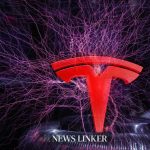Tesla‘s recent approval for its Full Self-Driving (FSD) technology in China marks a significant achievement for the company amidst a challenging year. With Tesla stocks soaring following the announcement, CEO Elon Musk’s recent trip to China appears to have been a successful strategic move to secure this crucial regulatory nod. This development could potentially reshape Tesla’s market position in China, enhancing its competitive edge against local automobile manufacturers.
The approval process for Tesla’s FSD technology in China involved overcoming several regulatory challenges, including crucial mapping requirements. Partnering with Baidu for mapping solutions, Tesla has now cleared significant hurdles that previously hindered its market entry for autonomous driving technologies in China. This approval is seen as a major victory for Tesla, potentially accelerating its data collection efforts from millions of miles driven on Chinese roads, which is vital for the continuous improvement of its autonomous driving algorithms.
What Does FSD Approval Mean for Tesla?
The green light for Tesla’s FSD in China is not just a regulatory win but a strategic enhancement of its product offerings in the competitive Chinese automotive market. Analysts, including Dan Ives from Wedbush, have labeled this development a “watershed moment” for Tesla, possibly increasing the appeal of Tesla vehicles among tech-savvy Chinese consumers. This approval may also pave the way for Tesla to expand its FSD technology to other countries, marking significant progress in its global market strategy.
How Will Tesla Compete in the Chinese Market?
Despite high product pricing, Tesla’s entry into the autonomous driving market in China with approved FSD technology could alter consumer preferences. Chinese buyers, known for their keen interest in advanced technology, might find Tesla’s offerings more appealing, thus helping the company to mitigate the impact of pricing disadvantages. This shift could potentially increase Tesla’s market share in China’s highly saturated automotive sector.
What Are the Broader Implications for Autonomous Driving Technology?
Tesla’s approval for FSD in China signifies a broader impact on the automotive industry‘s shift towards autonomous driving technologies. As Tesla collects and utilizes extensive driving data to enhance its algorithms, the global autonomous driving technology could see accelerated development, promoting advancements in safety, efficiency, and user experience across the automotive industry.
In research published in the ‘Journal of Autonomous Vehicles,’ a study titled “Advancements in Autonomous Vehicle Technology” corroborates the significance of data in training autonomous driving systems. The scientists highlight that real-world data collection is crucial for improving the safety and reliability of autonomous vehicles, underscoring the potential global benefits of Tesla’s expanded operations in China.
Key Insights from Tesla’s Strategy
- China’s approval could drastically increase Tesla’s data pool.
- Enhanced FSD technology might appeal strongly to tech-forward consumers.
- Potential roadmap for FSD expansion to other markets.
The strategic maneuvers by Tesla to secure FSD approval in China not only boost its stock but also position the company advantageously against local and international competitors. By leveraging advanced technologies and navigating complex regulatory landscapes, Tesla continues to play a crucial role in shaping the future of autonomous driving worldwide. This development is not merely a win for Tesla but a step forward for the global automotive industry, setting new benchmarks in the integration of technology and mobility.










